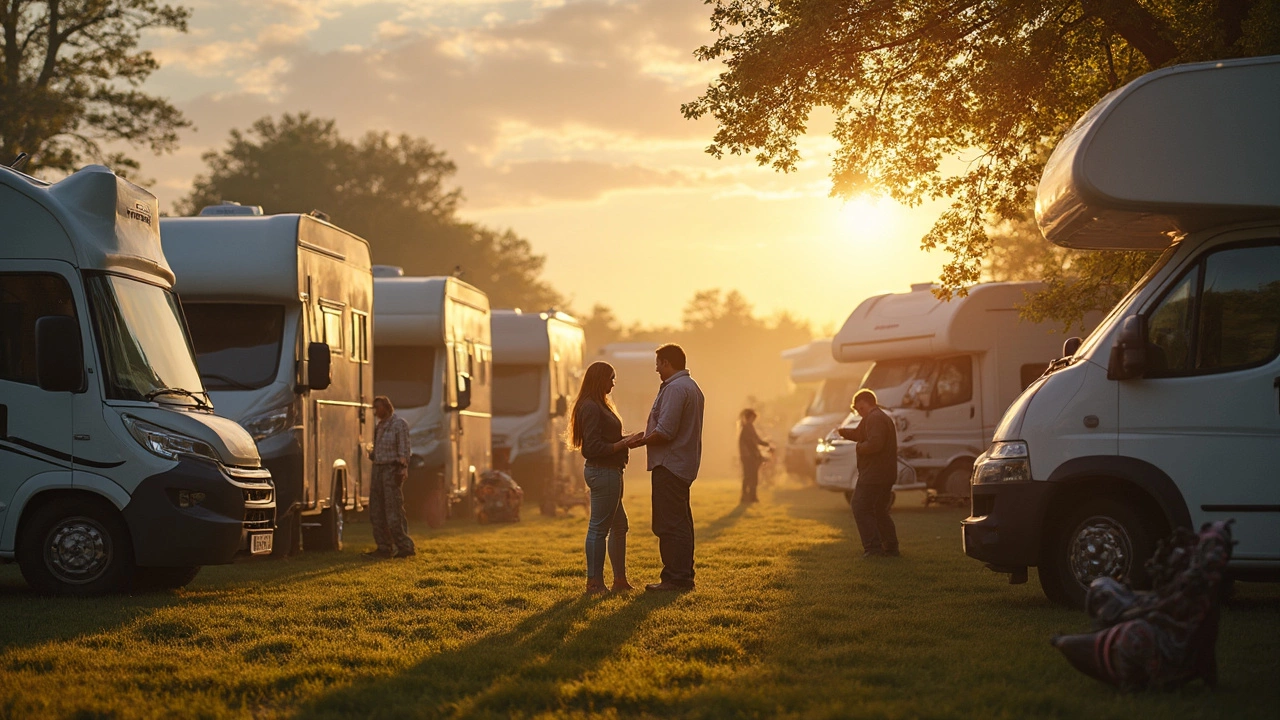Hidden RV Expenses – What You’re Actually Paying For
If you love the freedom of the open road, you’ve probably heard the phrase “RV life is cheap.” The truth is, many costs stay out of sight until they hit your wallet. Knowing where the hidden fees hide can keep your budget in check and your trips stress‑free.
Fuel, Power and the "12‑Volt TV" Trap
Fuel is the most obvious expense, but the way you use power can add up fast. Running a 12‑volt TV straight from the battery, for example, sounds simple, but it drains the battery and forces you to recharge more often. Every extra hour of TV means you’ll need to run the engine or hook up to a generator, spiking fuel use. A smarter move is to use a low‑power inverter or a TV designed for RVs that draws less juice. That small switch can save a few gallons each night.
Battery health itself is a silent cost. Deep‑cycle batteries lose capacity if you regularly run them to zero. Replacing a dead battery costs hundreds, so keep your power draw low, charge regularly, and consider solar panels if you boondock often.
Campsite Fees You Might Overlook
Many RVers think campsite fees are just the nightly rate, but there’s more. Some parks charge extra for electricity hookups, water, or dump‑station use. Others have hidden service fees for Wi‑Fi or club memberships. Look for “service charge” lines on the invoice – they’re easy to miss but add up quickly.
Free camping sounds like a dream, yet places like state forests or Walmart parking lots often have rules. Boondocking at Walmart can be free, but you might need to pay for a dump‑station elsewhere, or risk a ticket if you stay too long. Always check local regulations before you settle in for the night.
Insurance, Taxes and Registration Surprises
Insurance premiums can jump when you upgrade to a larger motorhome or add a trailer. Some insurers also require mileage reporting, which can raise rates if you travel a lot. Don’t forget vehicle tax – it’s based on weight and emissions, not just the purchase price.
When you register a new RV, you may need a special road tax class or a larger licence plate fee. These one‑time costs are easy to forget during the excitement of a new purchase.
Maintenance, Propane and Miscellaneous Costs
Regular maintenance – oil changes, tire rotations, brake checks – is a steady expense. Skipping a service to save money often leads to bigger repairs later. Keep a log of service dates and set reminders.
Propane powers your stove, heater and sometimes your fridge. A full tank can cost $30‑$40, but you’ll need to refill every few weeks on a cold trip. Factor this in when you calculate nightly costs.
Finally, watch out for disposal fees. Dumping waste at a sanitary station may be free at some parks, but other sites charge per use. Keep a small budget for these occasional fees – they’re a tiny part of the total but can surprise you if you’re unprepared.
By spotting these hidden expenses early, you can budget smarter, avoid nasty surprises, and keep the road feeling like a vacation, not a bill‑shock. Happy travels!
-
 VIEW POST
VIEW POSTHidden Costs of Owning an RV: What You Need to Know
Mar, 16 2025|0 CommentsOwning an RV may seem like a dream of adventure and freedom on the open road, but there are hidden costs that could catch novice owners off guard. From maintenance and insurance to unexpected repairs and storage fees, these expenses can quickly add up. Knowing what to expect in advance can save you from unwanted surprises. Discover the full range of costs involved to ensure you are fully prepared before diving into RV ownership.